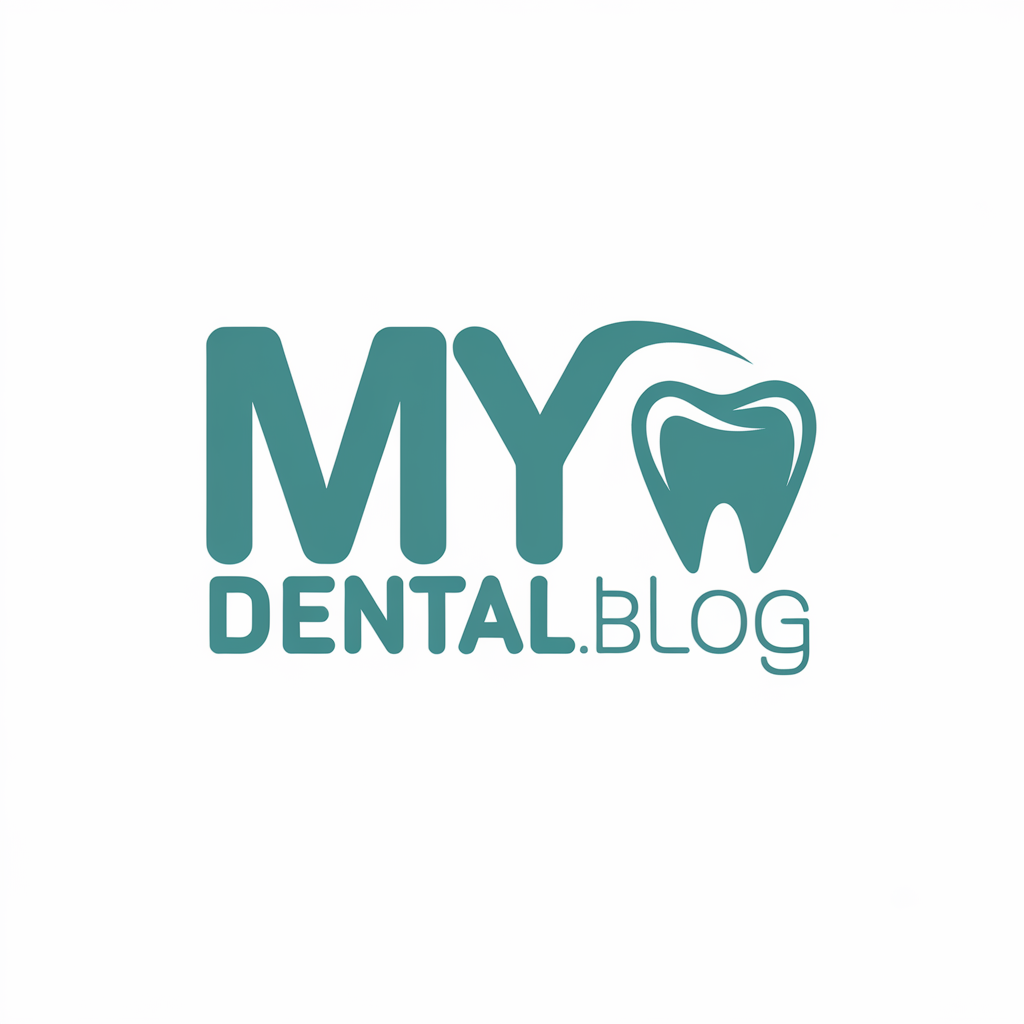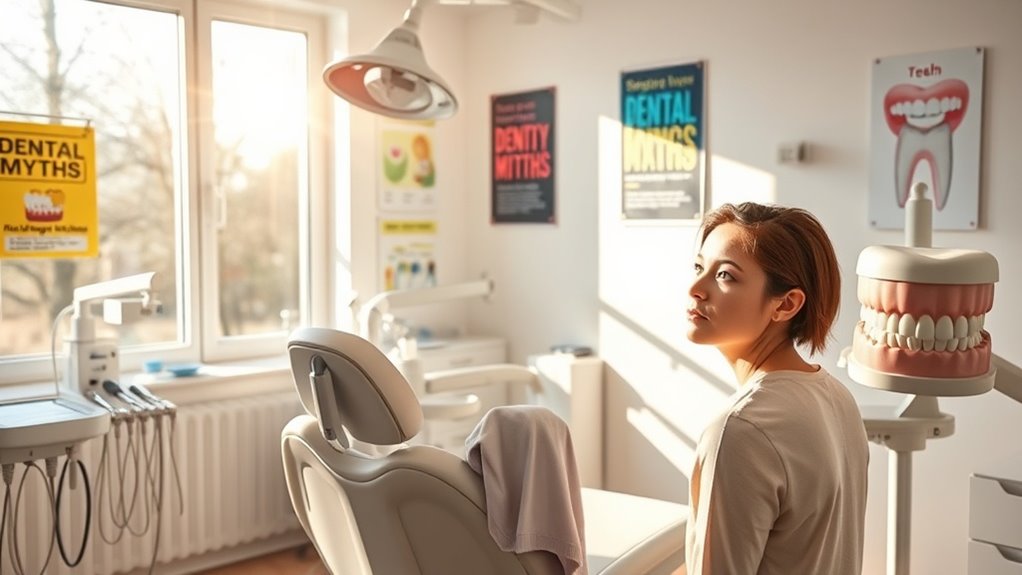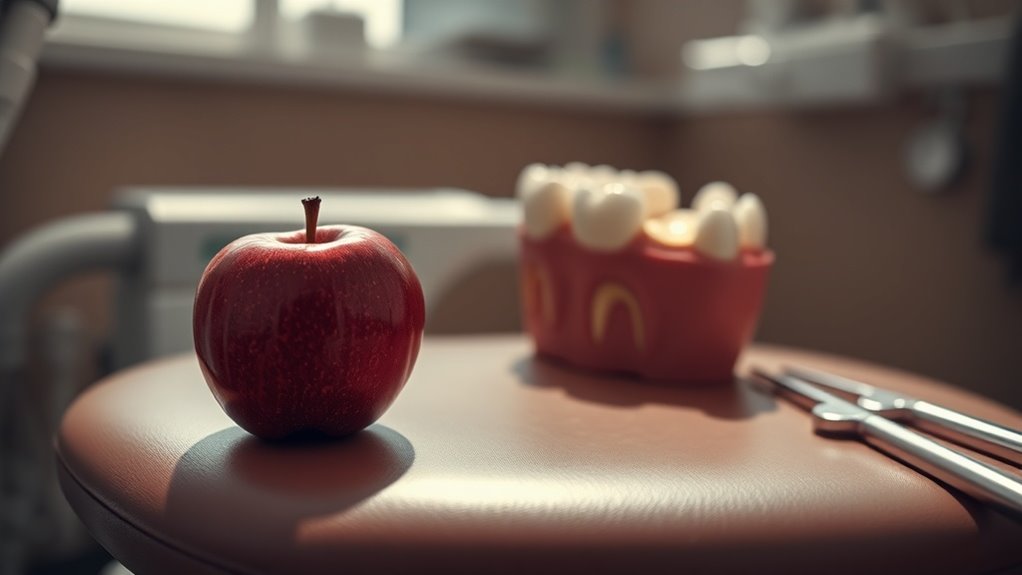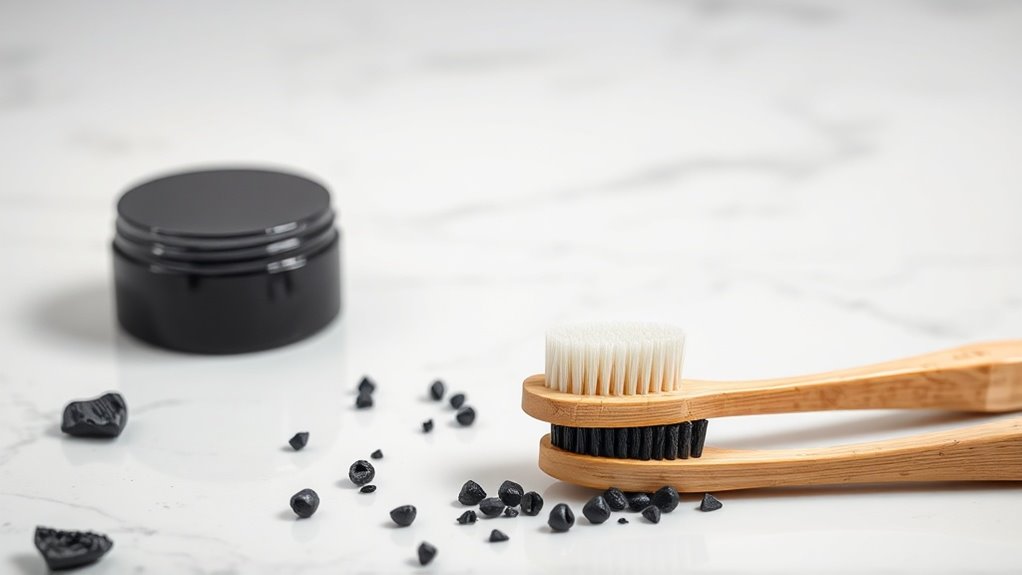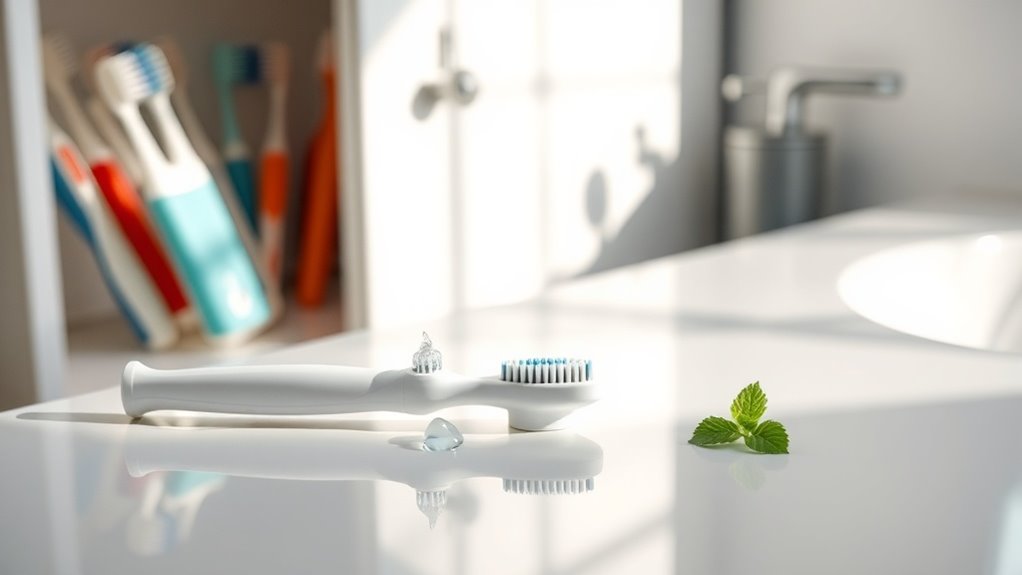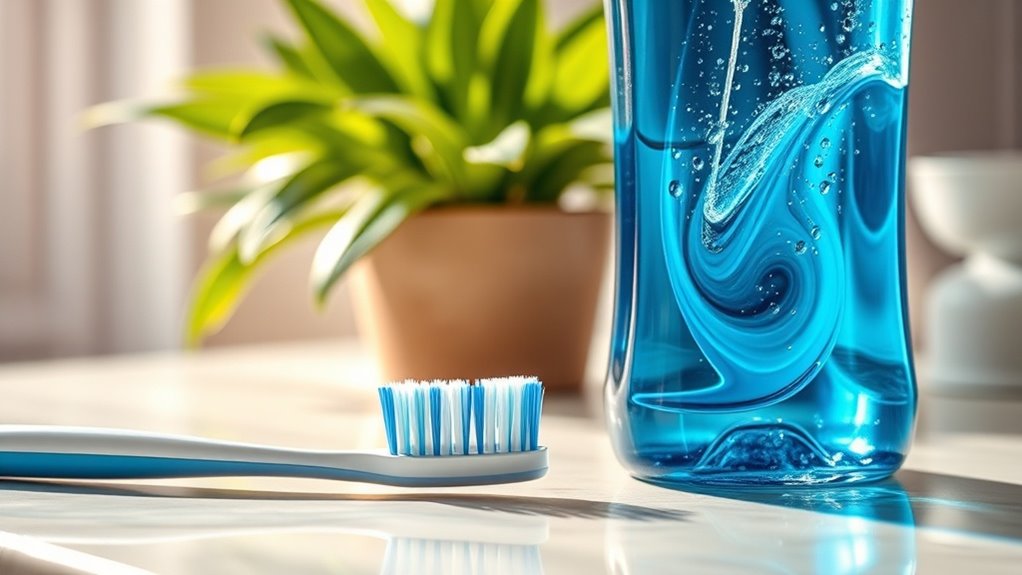10 Dental Myths You’ve Probably Believed
You’ve probably heard someone say that brushing harder guarantees cleaner teeth. In reality, this common belief can wear down your enamel instead. There are several dental myths that many people accept as truth without question. Understanding these misconceptions can significantly impact your oral health. Are you ready to uncover the truths behind these myths and improve your dental care practices?
Brushing Harder Means Cleaner Teeth
While you might believe that brushing harder ensures cleaner teeth, that’s actually a common misconception. Excessive pressure can damage your enamel and irritate your gums.
Instead, focus on using a soft-bristled toothbrush and proper technique to effectively remove plaque. Brushing after meals is a great way to keep your mouth clean and mitigate the impact of sugary foods on dental health.
Recognizing these dental myths helps you adopt healthier habits, ultimately leading to better oral hygiene and a brighter smile.
Sugar-Free Gum Replaces Brushing
Although chewing sugar-free gum can be a helpful aid in maintaining oral health, it doesn’t replace the need for regular brushing. Gum can stimulate saliva production, which helps neutralize acids and wash away food particles. However, it can’t effectively remove plaque or reach areas a toothbrush can. For optimal dental hygiene, stick to brushing twice a day and flossing regularly. Additionally, regular use of alcohol-free mouthwash can further enhance your oral care by reducing plaque buildup.
Whiter Teeth Are Always Healthier
It’s a common belief that having whiter teeth equates to better oral health, but that’s not always the case. Many factors contribute to dental health, including hygiene habits and diet. Whiteness can come from bleaching agents, but they don’t guarantee overall tooth well-being. Professional treatments can provide long-lasting results, but they aren’t a substitute for good oral hygiene practices.
| Teeth Appearance | Oral Health Status |
|---|---|
| Bright white | May be unhealthy |
| Naturally white | Generally healthy |
| Stained but healthy | Good oral hygiene |
| Over-bleached | Possible damage |
| Yellow due to age | Normal aging process |
You Don’t Need to Floss If You Brush
Many people believe that brushing alone is enough for optimal dental care, but this misconception can lead to serious oral health issues.
Brushing effectively removes plaque from the surfaces of your teeth but misses the spaces between them. Flossing daily is crucial for removing food particles and plaque in these hard-to-reach areas, helping prevent cavities and gum disease. Skipping flossing can increase the risk of gum disease development and lead to serious long-term dental problems.
Don’t skip it!
Dentistry Is Only for Pain Relief
Dental health goes beyond merely alleviating pain; it’s about maintaining a beautiful smile and preventing future problems.
Regular dental visits help you:
- Identify potential issues early
- Improve overall oral hygiene
- Enhance aesthetic appeal
- Boost self-esteem
- Promote overall health
Not just for emergencies, dentistry supports a proactive approach, ensuring your smile stays bright and healthy throughout your life. Additionally, regular check-ups contribute to better overall health by monitoring systemic health issues.
Baby Teeth Don’t Need Special Care
Neglecting baby teeth can lead to more than just cosmetic concerns. Proper care is essential, as these teeth hold space for adult ones and impact speech development.
If untreated, cavities can cause pain and infection, potentially affecting overall health. Establishing good oral hygiene habits early ensures your child maintains a healthy smile.
Dental Treatments Are Only for Adults
Why do some people believe that dental treatments are exclusive to adults? This myth overlooks the importance of dental care for children.
In reality, dental treatments are just as essential for kids. Consider these key reasons:
- Early intervention can prevent future issues.
- Children need braces and alignment treatments.
- Pediatric dentists specialize in children’s needs.
- Dental sealants can protect young teeth.
- Regular check-ups ensure healthy development.
Mouthwash Alone Can Prevent Cavities
Many people assume that a good mouthwash is all it takes to keep cavities at bay. However, while mouthwash can reduce bacteria and freshen breath, it doesn’t replace the need for regular brushing and flossing.
These practices are crucial in removing plaque and food particles that lead to cavities. To effectively prevent cavities, maintain a comprehensive oral hygiene routine.
Teeth Whitening Damages Enamel
Teeth whitening is often seen as a quick solution for a brighter smile, but there’s a common misconception that these treatments inevitably damage enamel.
In reality, many factors influence enamel safety:
- Type of whitening product used
- Concentration of hydrogen peroxide
- Duration of application
- Frequency of treatments
- Individual enamel sensitivity
Choosing professional treatments can minimize risks and help maintain enamel health while achieving a radiant smile.
If Your Gums Don’t Hurt, They’re Healthy
Just like the misconception surrounding teeth whitening and enamel, there’s a prevailing belief that the absence of pain in your gums guarantees their health.
However, gum disease can develop silently without causing discomfort.
Regular dental check-ups and good oral hygiene are essential for monitoring gum health, ensuring inflammation or infection doesn’t go unnoticed.
Your gums deserve proactive care, even when they feel fine.
